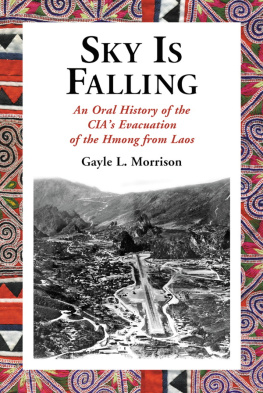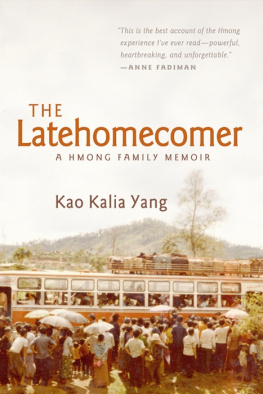Modern Jungles
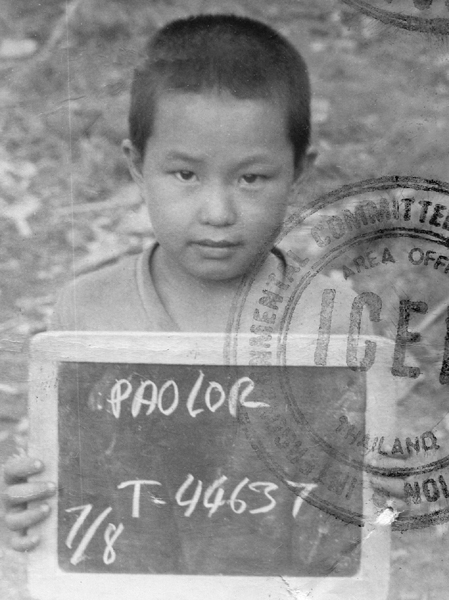
Modern Jungles

A Hmong Refugees Childhood Story of Survival
Pao Lor
WISCONSIN HISTORICAL SOCIETY PRESS
Published by the Wisconsin Historical Society Press
Publishers since 1855
The Wisconsin Historical Society helps people connect to the past by collecting, preserving, and sharing stories. Founded in 1846, the Society is one of the nations finest historical institutions.
Join the Wisconsin Historical Society: wisconsinhistory.org/membership
2021 by the State Historical Society of Wisconsin
E-book edition 2021
Publication of this book was made possible thanks to the generous support of the Wisconsin Historical Society Readers Circle. For more information and to join, visit support.wisconsinhistory.org/readerscircle.
For permission to reuse material from Modern Jungles (ISBN 978-0-87020-959-8; e-book ISBN 978-0-87020-960-4), please access www.copyright.com or contact the Copyright Clearance Center, Inc. (CCC), 222 Rosewood Drive, Danvers, MA 01923, 978-750-8400. CCC is a not-for-profit organization that provides licenses and registration for a variety of users.
Interior images are from Pao Lors personal collection. The photo on page ii shows him at age seven at Ban Vinai Refugee Camp in Loei, Thailand, in 1979. The photo was taken as part of the official application process for refugee relocation. The map on page vi was created by Mapping Specialists, Ltd.
Cover design by Ryan Scheife, Mayfly Design
Typesetting by Wendy Holdman
25 24 23 22 21 1 2 3 4 5
Library of Congress Cataloging-in-Publication Data
Names: Lor, Pao, 1972 author.
Title: Modern jungles : a Hmong refugees childhood story of survival / Pao Lor.
Description: [Madison] : Wisconsin Historical Society Press, [2021]
Identifiers: LCCN 2020054671 (print) | LCCN 2020054672 (e-book) | ISBN 9780870209598 (paperback) | ISBN 9780870209604 (e-book)
Subjects: LCSH: Lor, Pao, 1972 Childhood and youth. | Hmong AmericansWisconsinBiography | RefugeesThailandBiography. | RefugeesLaosBiography. | ImmigrantsWisconsinGreen BaySocial conditions. | WisconsinGreen BayEthnic relations. | WisconsinGreen BayRace relations. | Green Bay (Wisc.)Biography. | Hmong (Asian people)LaosBiography.
Classification: LCC F590.H55 L67 2021 (print) | LCC F590.H55 (e-book) | DDC 305.8009775/61dc23
LC record available at https://lccn.loc.gov/2020054671
LC e-book record available at https://lccn.loc.gov/2020054672
Contents
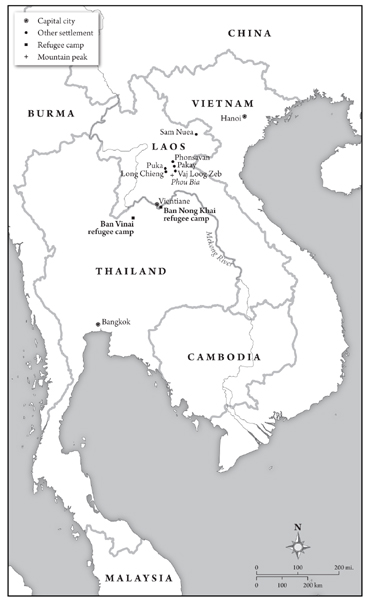
Pao Lor, his family members, and other Hmong refugees fled from their villages in the mountains of Laos through the jungle and across the Mekong River into Thailand, where they spent several years in Thai refugee camps before relocating to other countries. The locations of some smaller Hmong villages no longer in existence are approximate and based on the authors best recollection on this map of Southeast Asia, circa 1977.
There is no easy walk to freedom anywhere, and many of us will have to pass through the valley of the shadow of death again and again before we reach the mountaintop of our desires.
Nelson Mandela
Growing up in the jungles of Laos during the late 1970s, my childhood was one of isolation and tradition, then war and a long flight for refuge. Unlike my colleagues, friends, and neighbors who grew up in the United States, I didnt go to school, play sports, or celebrate birthdays as a young child. My days were taken up with doing chores, playing in my village, and following my clan and tribe through the seasonal routines of living and farming in the mountains. Not even the most forward-thinking person in our small world could have predicted what would happen to the Hmong in the 1970s or where my life would take me.
Almost five decades later, my family and I call Kimberly, Wisconsin, home. Kimberly is a small community about thirty miles southwest of Green Bay, a place none in the village of my youth had ever heard of. I live there with my wife, Maya, and our four children: our sons Sterling, Phenix, and Reeve and our daughter, Chynna. I am hopeful that Kimberly will be our home for many years, that my children will never be uprooted from their lives as their grandparents and I were, and that they know the kind of happiness that their ancestors fought hard for them to have.
Today, I hold the Patricia Wood Baer Professorship in Education at the University of WisconsinGreen Bay, where I am also chair of the Professional Program in Education. Maya is a social worker in northeastern Wisconsin, working for Outagamie County Health and Human Services since 1997. Maya and I have achieved a level of security and success that twenty-five years ago would have seemed surreal to me, and even today I think of my life as an ongoing struggle.
A chance encounter prompted me to think about my past more deeply, to pause and look back on what I have been through during my journey from Laos to the United States. One day, after I had concluded a presentation sharing my life experiences and perspectives on the Hmong American diaspora, an audience member approached me and asked, Have you ever considered writing a book about your life? I was surprised and excited but also at a loss for words. I thought to myself, What? A book about me? I havent done anything worth writing about. For years afterward, I imagined what a book about my life would look like. I asked myself if audiences would find my life experiences intriguing and if there might be others like me. If so, would a book about my life help them? Finally, I wanted the book to serve a greater purpose, to be an homage to Hmong Americans, to refugees who may share similar experiences to mine, and to all the individuals, organizations, communities, and countries that offer hope and opportunity to oppressed and persecuted peoples around the world. With that, I set out to see where writing my story would take me.
I decided to focus the book on the first fourteen years of my life, when I was living in Laos, then in refugee camps in Thailand, briefly in Long Beach, California, and finally in Green Bay, Wisconsin. It was a time of loss, tragedy, and hopelessness but also of triumph and celebration for me and my surviving siblings: my oldest brother Vang, my second-oldest brother Vue, my sister Yanghoua, my third-oldest brother Pheng, and my younger brother Kong.

My parents are pictured in the 1960s in Phonsavan, Laos, in one of the few photographs our family has of them. My mom wears traditional Hmong clothes, while my dads clothing is already westernized.
The Hmong trace their origins to China, to powerful agrarian kingdoms established thousands of years ago near the Yellow and Yangtze Rivers. As Chinas imperial power grew, the Hmong came into conflict with Chinese authorities for control of resources, and eventually the Hmong were forced to leave China for fear they would be massacred. From China, the Hmong migrated across Southeast Asia during the nineteenth century to Thailand, Myanmar, Vietnam, and Laos.
For many years, my ancestors found a renewed sense of peace in the treacherous and unforgiving jungles of Laos. But the French, who began colonizing Laos in 1893, soon imposed harsh taxes on the Hmong, who paid in valuable opium, as opium poppy is easily grown on Hmong farmland. The Hmong eventually organized an effective resistance that won them greater governmental and local autonomy. Still, life was harsh. Farming, hunting, and fishing were difficult in the mountains, and groups usually moved from place to place every two to three years.

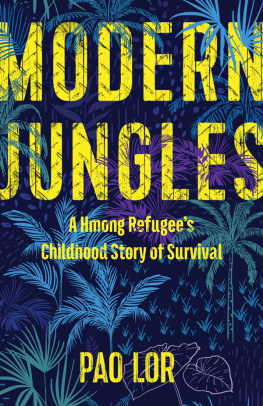
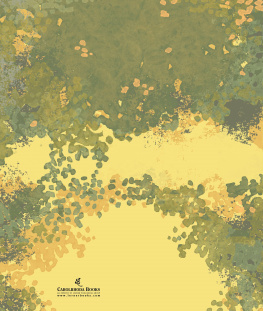
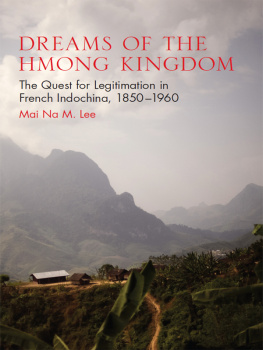
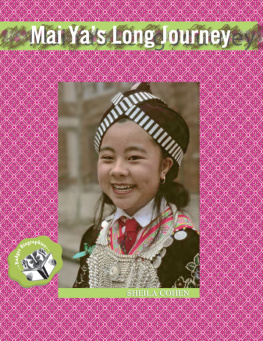

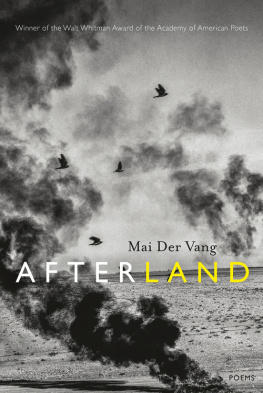
![Yang - The latehomecomer: [a Hmong family memoir]](/uploads/posts/book/165016/thumbs/yang-the-latehomecomer-a-hmong-family-memoir.jpg)

